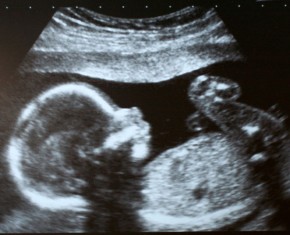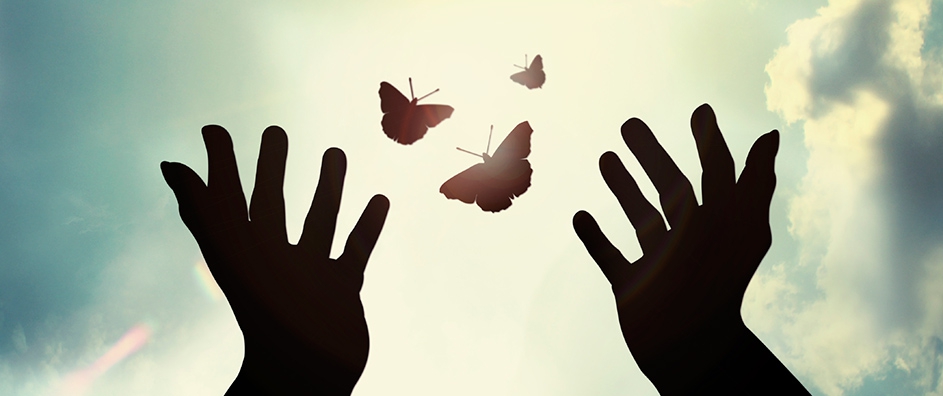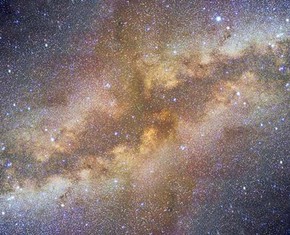The views expressed in our content reflect individual perspectives and do not represent the authoritative views of the Baha'i Faith.
Just as being in motion is the test of life, so being stationary is the test of death and when a moving object stops it retrogrades. To stop means to fall. When a tree stops giving fruit it decays. In other words, man must throughout all the degrees of life evolve and progress day unto day, for life is continuous. – Abdu’l-Baha, Divine Philosophy, p. 124.
All of us evolve. No complex organism enters this world fully developed. As life evolves and matures, it must do so one stage at a time, just as every species evolves one generation at a time.
Like all beings in nature, every person has a life cycle, and participates in the cycle of life–we dance, and we go to the dance. We evolve individually, and as individuals we all participate in the evolution of the group. Micro- and macro-, we each have our own growth pattern and serve as a cell in the larger pattern of growth. The smaller patterns repeat themselves at universal levels, so our growth simply reflects a stepped-down version of that larger evolutionary process.
The earliest observers of nature plotted plant and animal growth with simple measurements and found that all growth comes in stages. These stages, others later discovered, have a striking similarity in their patterns that applies across the spectrum of all life forms. The scientists who study those patterns understand that growth and maturity mean more than simply getting bigger–they mean adding layers of complexity. This building of progressive complexity lies at the heart of all growth and maturation.
Life moves, say the biologists, along a predictable, progressive course from the simple to the not-so-simple, from the single to the multiple, from elementary to complex. All life acts in this way.

The fundamental process of growth itself, no matter where it occurs, looks the same, proceeding in a systemic fashion through definable stages. Now that we have a fascinating photographic record of how babies develop in the womb, we know scientifically that this stage-specific pattern of growth means all people constantly have a next stage evolving within them.
Since science has proven that nature itself gradually evolves and differentiates, we can clearly understand that the simpler, more basic forms of life must appear first, becoming more complex as higher-order life-forms emerge. So nature, which organically mirrors the inner path, manifests itself in progressively organized grades, or steps, or levels.
The philosopher Ken Wilber and the biologist Rupert Sheldrake coined the term “nested reality” for this phenomenon, saying that “in general hierarchy, the higher levels include or enfold or nest the lower.”
In every living thing, life unfolds in this manner. Even learning, whether for animals or humans, proceeds from simplest to more and more complex in a progressive fashion. First babies learn to babble, then they start to differentiate sounds. Soon after they have reached that level, they begin making their first words, then phrases, then sentences.
We evolve progressively, adding layers of complexity as we grow. Without the increasing complexity of progressive evolution, we could not develop. Life means movement. Without development and growth, we could not recognize its opposite:
Man must walk in many paths and be subjected to various processes in his evolution upward. Physically he is not born in full stature but passes through consecutive stages of fetus, infant, childhood, youth, maturity and old age. Suppose he had the power to remain young throughout his life. He then would not understand the meaning of old age and could not believe it existed. If he could not realize the condition of old age he would not know that he was young. He would not know the difference between young and old without experiencing the old. Unless you have passed through the state of infancy how would you know this was an infant beside you? If there was no wrong how would you recognize the right? If it were not for sin how would you appreciate virtue? If evil deeds were unknown how could you commend good actions? If sickness did not exist how would you understand health? Evil is non-existent; it is the absence of good; sickness is the loss of health; poverty the lack of riches…
Briefly; the journey of the soul is necessary. The pathway of life is the road which leads to divine knowledge and attainment. Without training and guidance the soul could never progress beyond the conditions of its lower nature… – Abdu’l-Baha, Foundations of World Unity, p. 77.
With this spiritual perspective on the evolution of the physical, we can start to see our own increasing complexity, our maturational process, as part of that pathway of life Abdu’l-Baha describes:
…regarding the progress of the spirit in the world of the Kingdom after its ascension, it is wholly beyond space and time, and developments, after leaving this body, are spiritual and not terrestrial. It is like unto the progress of the child from the world of the fetus to the world of maturity and intelligence, from the world of ignorance to the world of knowledge, from the station of imperfection to the pinnacle of perfection.
As Divine Perfections are infinite, therefore the progress of the spirit is limitless. – Abdu’l-Baha, Star of the West, Volume 2, p. 15.
















Comments
Sign in or create an account
Continue with Googleor